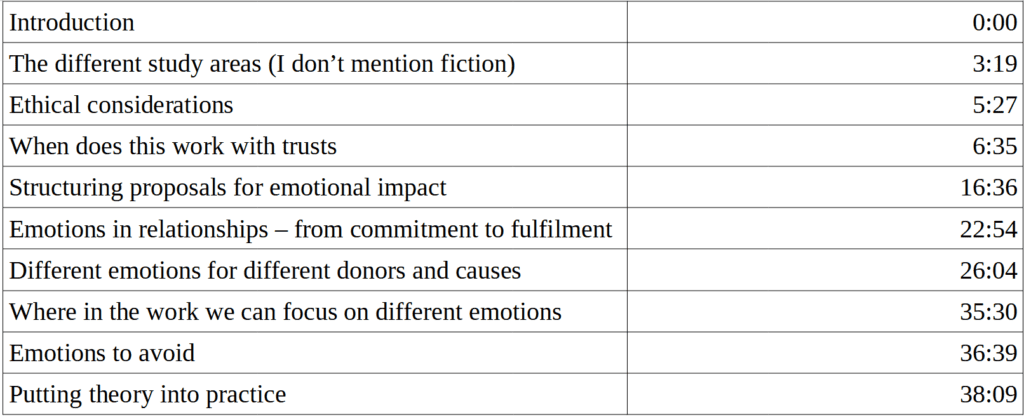Photo: Sharon McCutcheon, on Unsplash
This webpage is for trust fundraisers with three or more years’ experience. Beginners should use this page instead.


Photo: Sharon McCutcheon, on Unsplash
This webpage is for trust fundraisers with three or more years’ experience. Beginners should use this page instead.
Think back to when you first worked in your current cause. What moved you deeply when you heard it? (It’s surprising how often that ISN’T clearly reflected in one’s proposals.) Whatever it was, I bet it doesn’t have the same effect on you today, but there’s still a deep underlying connection. What moves you now?
I think it’s a bit like that for grant-makers. You see so many different projects and especially in the causes you’re focused on. It’s not easy to be woken up.
I recently assessed a project for pregnant refugee women who were in desperate situations: homeless and at risk of exploitation for sex work. I was deeply shocked and moved. It actually took me a while to get to the point of functioning very rationally again. We went through their work two or three times again in a shortlisting meeting and I still felt the power of it, but it was nowhere near as overwhelming. I saw them present more recently and was very much on their side, but the emotional heft of what was being said had somehow gone, quite a bit. I was hearing it more in the same way I can put a lot of things in my own proposals: dispassionately ticking points off.
When your project is just one of many, how do you bring it alive emotionally for the assessor?
The following suite of three videos mostly covers ground already covered in the behavioural economics, rhetoric and storytelling pages and the emotions section of the Trustees webpage. It just brings some disparate points together.
There is some new material about case studies in the third video.

The trust fundraisers I’ve presented this to have found it useful orientation to the work. So despite the unpromising subject. I suggest you don’t skip it without seeing the kind of content.
A point about different emotions that prompt giving that I didn’t get into this video. I don’t think it’s completely that different individuals give for different emotional reasons. I also think that individual people can be swayed in different ways.
For example, I’m off to a grants meeting today. Of the projects I most want to support: there’s one where my emotions are out-and-out compassion for the situation of the beneficiaries; one I really, really want to see do well because I feel delight about it as a great idea that addresses issues I strongly believe in; another I feel fired up about, in a more political way; and one I feel a strong sense of duty to the funder to support, it’s such a good fit with what they want to achieve. (All four are good fits with the trust, btw – I’m just cataloguing my different personal emotional reactions to illustrate a point.)

